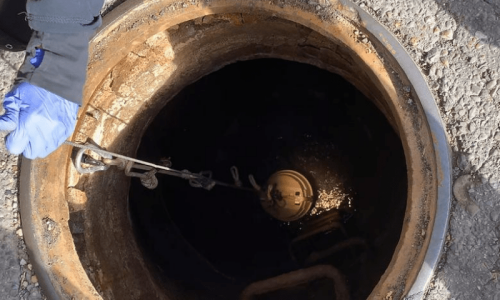KARACHI, April 22: The Sindh government has remained unable to effectively implement environmental laws due to lack of expertise and shortage of relevant human resources, as most of the sanctioned posts of technical personnel and field officers in the Sindh Environmental Protection Agency have been vacant for long.
This was stated by Sindh Environment Secretary Mir Hussain Ali while speaking as chief guest in a panel discussion on Environment and Recycling in Pakistan organised by the Community Health Sciences Department of the Aga Khan University on Tuesday to observe the Earth Day.
He said several issues related to environment degradation and water and air pollution needed to be timely addressed, but the Sindh environment department and Sindh Environmental Protection Agency remained unable to take action against polluters and violators of environmental laws just because of the shortage of manpower. Seventy per cent of the sanctioned posts of technical personnel and field officers in Sepa have been vacant for long. Due to the poor working conditions, even a couple of capable personnel could not continue with it.
In Karachi, Sepa was somehow managing its headquarters, while the regional offices in Hyderabad and Sukkur had little staff, he said, informing other participants of the forum that the environment department had requested the public service commission to ensure recruitment of officers against the budgeted posts at the earliest.
The secretary noted that industries could contribute in rectifying the environment-related situation by exercising honesty as far as disposal of solid, chemical and liquid wastes and emissions were concerned. It was carelessness of industrialists and farmers that the lakes and rivers of Sindh had become a constant source of threat to human health, he added.
The government agencies were required to treat solid waste and sewage on a scientific basis before releasing them into drains and the sea, he said. However, he added, it was a matter of great concern that only 30 per cent of the city’s sewage was treated before being disposed of.
At the outset, the experts participating in the discussion agreed that the communities, both in urban and rural areas, were required to come up with a caring attitude towards nature and its resources. They stressed the need for educating people to help reduce the waste generated and promote recycling habits. Segregation of waste at domestic and industry levels in addition to proper disposal of hazardous materials in a scientific manner were other points they pondered on.
The experts also called for development of engineered landfill sites in big cities to discourage burning of garbage in the open which caused a number of health problems.
Dr Gregory Pappas, the chairman of the AKU community health department, conducted the proceedings. Dr Zafar Fatmi, the department’s programme director, Shahid Lutfi and Asif Farouque, the representatives of two private waste management companies based in Karachi and Lahore, respectively, and Mohammad Anisur Rahman of an oil and gas firm, also spoke.














































Dear visitor, the comments section is undergoing an overhaul and will return soon.